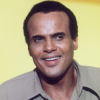Harry Belafonte

Harry Belafonte
Harold George "Harry" Bellanfanti, Jr., better known as Harry Belafonte, is an American singer, songwriter, actor, and social activist. One of the most successful Caribbean American pop stars in history, he was dubbed the "King of Calypso" for popularizing the Caribbean musical style with an international audience in the 1950s. His breakthrough album Calypsois the first million selling album by a single artist. Belafonte is perhaps best known for singing "The Banana Boat Song", with its signature lyric "Day-O". He...
NationalityAmerican
ProfessionPop Singer
Date of Birth1 March 1927
CityNew York City, NY
CountryUnited States of America
I'm very familiar with poverty. I find it easy to be with, whether I'm in America or in Africa or in Asia. Wherever I go and find the environment of those who are living in poverty and resisting poverty is a great in which I have great comfort.
I come from a sense of struggle, a sense of using the instruments that were given to me to manipulate the environment in which I found myself, and joined up with those who are equally as skillful at manipulating that environment, as was I.
I think America offers a dream that cannot be fulfilled as easily anywhere else in the world as it could be fulfilled here. Although oppression was common to all of us, those styles of oppression gave us the opportunity to see the world in dimensions we didn't quite see growing up in any one place.
The Catholic Church had strict racial attitudes and intolerance for anybody who was not Catholic. When I look at a lot of Black ministers and what went on in the Black church, I was more caught up with those who were in Cadillacs and shiny suits than I was with those who were Kingian in their style.
The sham engineers of the music industry, who steer the wheels of public opinion, are driving the good features of calypso into the ground. I shudder to think what these greedy men will eventually do to this true art form.
John say's it's James who started first, James tells the story in reverse. I drag my belt from off me waist, you should have heard dem screaming round de place.
More than once my mother would point out: "Harry Belafonte is the best-looking man on the planet.
I not only think that they (U.S. leaders) are misguided, but I think they know exactly what they are doing and I think that they are men who are possessed of evil.
I didn't like The Wiz and it wasn't because black people were doing it. I didn't like The Wiz because it was a badly made movie off a classic. Why are you remaking something unless you have something better in mind?
Why are we mute? Where are our leaders, our legislators? Where is the church?
Anti-democracy...is a virus that exists, and pro-democracy is the antibody to that virus, and I think we have to become vigilant, and we have to stay on top of the issues of democracy and freedom.
I don't think that (U.S. President) George Bush...is a man of honor,
Fascism is fascism. Terrorism is terrorism. Oppression is oppression.
Art in its highest form is art that serves and instructs society and human development.